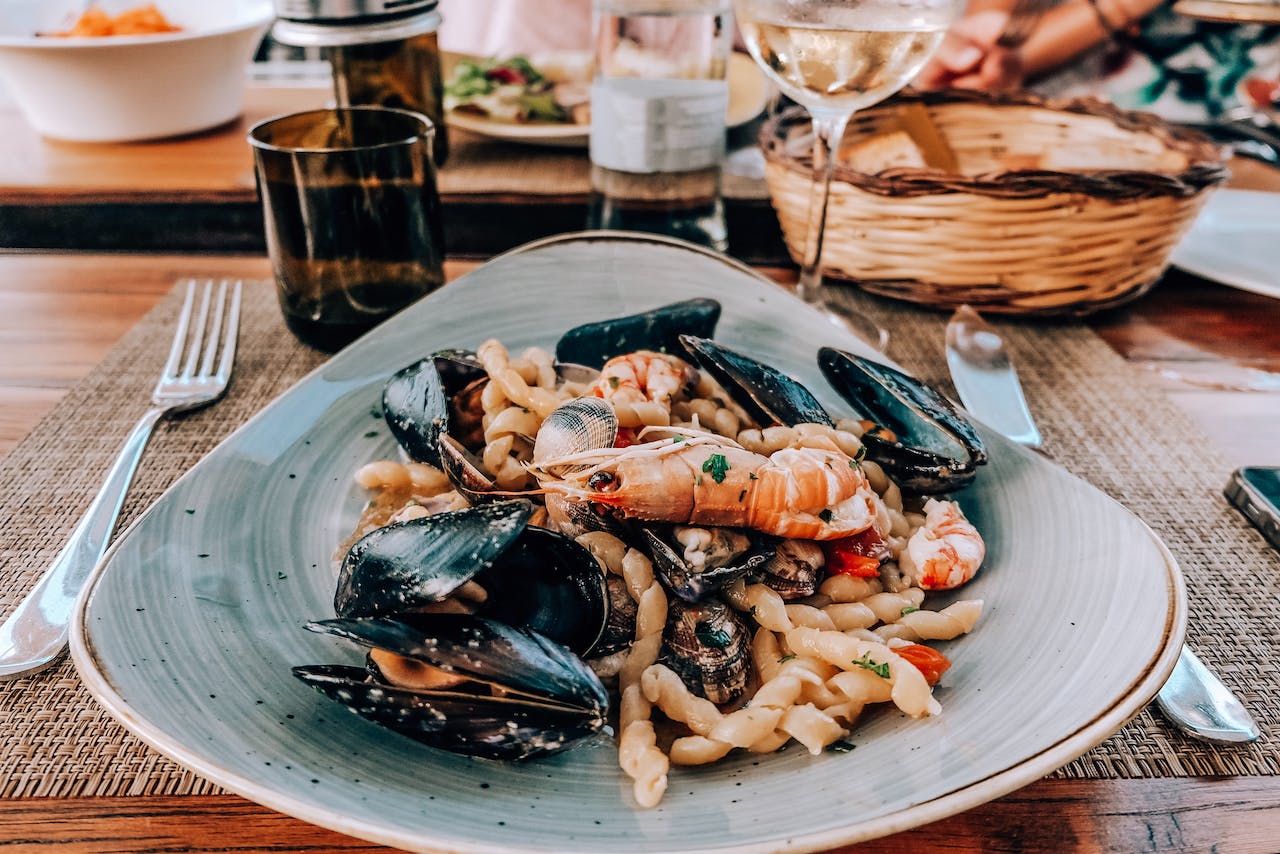Unlocking the Health Benefits of a Shelled Seafood Meal
Shellfish (including clams, oysters, and mussels) and crustaceans (including shrimp, crab, and lobster) are low in calories and packed with lean protein and healthy fats. They also contain Omega-3 fatty acids, Vitamin B12, zinc, and selenium. These nutrients reduce inflammation and support brain function.
Before adding seafood to your diet, check for possible risks such as foodborne illness and allergies.
Contents
Protein
The proteins in all types of shelled seafood are essential to a healthy diet. They provide lean protein that helps build muscles and reduce hunger. Omega-3 fatty acids are important for optimal health and are abundant in seafood. Additionally, seafood is low in saturated fat, making it a healthy and nutritious food choice. Eating two servings of seafood a week, as recommended by the Dietary Guidelines for Americans, is an excellent way to increase your intake of these heart-healthy fatty acids.
A 3-ounce serving of clams provides 22 grams of protein and only 126 calories. Protein is the body’s building block and provides energy to fuel essential functions like muscle growth, cell repair, and hormone production. Protein also contributes to a feeling of fullness, which may help you manage your weight.
Shellfish also offer a healthy source of omega-3 fatty acids. These fatty acids support heart health by lowering cholesterol and decreasing inflammation. In addition to boosting brain health, omega-3 fatty acids may protect against depression and improve immune function.
Unlike red meat, which can be high in saturated fat, most fish and shellfish are low in saturated fat and contain only a small amount of cholesterol. Ounce for ounce, seafood is lower in saturated fat than most other types of meat.
Omega-3 Fatty Acids
Shellfish like crabs, shrimp, and oysters are a rich source of omega-3 fatty acids. These nutrients can lower cholesterol levels and reduce your risk of cardiovascular disease. They also help control blood sugar, boost immunity, aid weight loss, and improve brain and heart health.
These fats are polyunsaturated fatty acids (PUFA) in fish, eggs, nuts, seeds, and vegetable oils. They are essential for cellular function and help your body use other fats, such as monounsaturated fatty acids.
PUFAs, sometimes known as “good” fats, have the potential to fend off chronic conditions like cancer, heart disease, Alzheimer’s disease, and depression. Oily fish is the primary source of omega-3 fatty acids, which are important for good health. However, other whole foods such as chia seeds, walnuts, soybeans, and spinach are also good sources of these fatty acids. Most fish include two forms of omega-3 fatty acids: docosahexaenoic acid (DHA) and eicosapentaenoic acid (EPA). Since the human body cannot produce EPA and DHA, obtaining these nutrients from your diet is essential. The EPA and DHA in seafood are available in the form of phospholipids, which make up the membranes in your cells. They also create a type of hormone called eicosanoids, which act as chemical messengers in your body.
Minerals
Shellfish, like lobster, shrimp, and oysters, have high protein. They also contain vital nutrients and minerals such as zinc, iron, copper, potassium, inorganic phosphate, selenium, vitamin B12, and iodine.
These nutrients play an essential role in the body, including wound healing, immunity, bone health, muscle contraction, and energy metabolism. Eating a variety of seafood, such as fish and shellfish, two or more times per week, as per recommendations of the Dietary Guidelines for Americans, is a great way to ensure you get enough of these essential nutrients.
Although many people avoid shellfish because of allergies, they are a nutritious option for those who can. The top five shellfish that have the highest levels of hard-to-get vitamins include Vitamin B12, which promotes healthy blood cells and nerves; Selenium, which helps prevent cancer cell growth; Omega-3 fatty acids, which reduce heart disease risk; and Iodine, which regulates thyroid function and promotes healthy pregnancy development and baby brain, vision and immune system development.
When shopping for seafood, look for sustainable options caught and harvested responsibly. Check the Marine Conservation Society Good Fish Guide for current sustainability ratings and information on each type of seafood. Avoid consuming large fish high in mercury or cadmium, which accumulate in the environment and may be passed on to humans, as well as crabs and shrimp-fed contaminated waste.
Vitamins
Shellfish are rich in protein, omega-3 fatty acids, vitamins, and minerals. They are minimal in calories and fat as well. These seafoods include easily digested proteins that aid in muscle growth. Additionally, the abundance of antioxidants in shellfish helps in the prevention of cancer, heart disease, and other illnesses.
A serving of a crustacean-like lobster or prawn provides you with 30 grams of protein. A cup of mussels or oysters gives you 18 grams of protein. Shellfish also provide vitamin B12, which is important for forming red blood cells. The B vitamins in shellfish also support healthy skin and a more robust immune system.
Shellfish have a high concentration of omega-3 fatty acids, which helps prevent cardiovascular diseases. They also have low levels of saturated fats. They are a good calcium, magnesium, iodine, and vitamin D source.
Seafood plays a significant role in the diets of many of the world’s top 10 healthiest countries. This results from their abundance of zinc, vitamin D, iodine, and omega-3 fatty acids. They are also low in saturated fats and contain low dietary cholesterol. You may incorporate these nutrient-dense foods into your diet by ordering the seafood menu at Don Cuco. The menu includes a variety of fish entrees and a selection of delicious shellfish.

